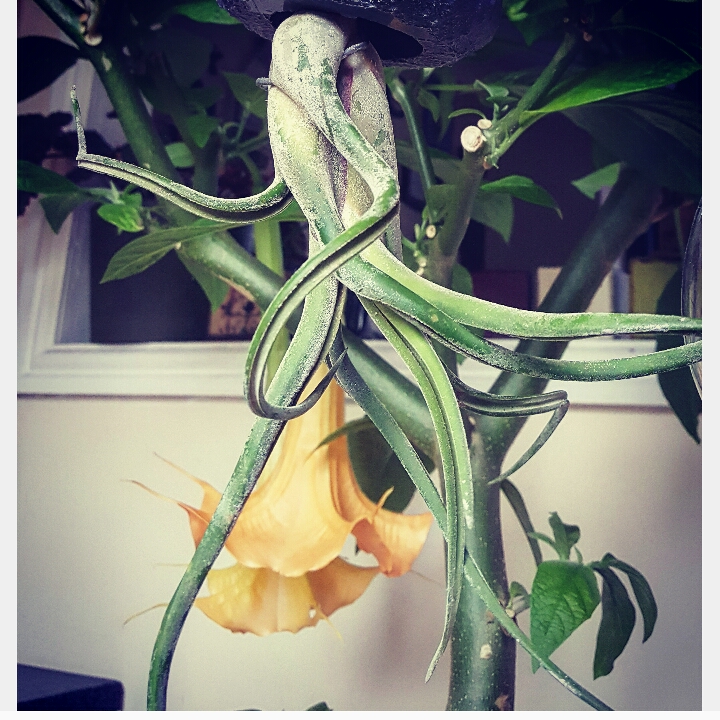
Tillandsia 'Caput-Medusae XXL'
Tillandsia
Tillandsia is a species of evergreen, perennial flowering plants commonly called 'airplants'. They are mostly epiphytes growing without soil while attached to other plants. Generally, the the thicker the leaf, the more tolerant they are of drought conditions. Tillandsias are very hardy, and require much less attention than other house plants. Propagation is by seeds or by offsets called "pups" which can be separated when about 2/3 the size of the mother plant. The flowers are generally small. The plants are monocarpic which means that they die after blooming. Tillandsia 'Caput Medusae' is one of the hardiest airplant varieties.This plant is more robust when grown at cooler temperatures.
Contributed by @wesleybrian
-
Partial shade
-
Very little water
-
Not Frost hardy
-
Free draining
Common name
Tillandsia
Latin name
Tillandsia 'Caput-Medusae XXL'
type
Epiphyte
family
Bromeliaceae
ph
5.0 - 5.0 Acid - Neutral
Plant & bloom calendar
-
Best time to plant
-
When the plant will bloom
full grown dimensions
 0.20 M
0.20 M
0.20 M
0.20 M
Tillandsia 'Caput-Medusae XXL'
Tillandsia is a species of evergreen, perennial flowering plants commonly called 'airplants'. They are mostly epiphytes growing without soil while attached to other plants. Generally, the the thicker the leaf, the more tolerant they are of drought conditions. Tillandsias are very hardy, and require much less attention than other house plants. Propagation is by seeds or by offsets called "pups" which can be separated when about 2/3 the size of the mother plant. The flowers are generally small. The plants are monocarpic which means that they die after blooming. Tillandsia 'Caput Medusae' is one of the hardiest airplant varieties.This plant is more robust when grown at cooler temperatures.
Planting
From Early Spring TO Late Winter
Tillandsias can be grown basically anywhere, on rocks, in a seashell or on coral, in ceramic or pottery, attached to wood (not pressure treated wood this is impregnated with copper, and copper will kill your plant). When considering what you are going to do with your plant don’t forget that you have to be able to water it and it has to be placed somewhere that it will get sufficient light. Give them bright, filtered light.
Flowering
From Early Spring TO Late Winter
Flowers can last from several days to many months, depending on the species, and different species bloom at different times depending also on its care and environment. You can expect blooms from mid winter through mid summer depending on the plant.
Planting
From Early Spring TO Late Winter
Tillandsias can be grown basically anywhere, on rocks, in a seashell or on coral, in ceramic or pottery, attached to wood (not pressure treated wood this is impregnated with copper, and copper will kill your plant). When considering what you are going to do with your plant don’t forget that you have to be able to water it and it has to be placed somewhere that it will get sufficient light. Give them bright, filtered light.
Flowering
From Early Spring TO Late Winter
Flowers can last from several days to many months, depending on the species, and different species bloom at different times depending also on its care and environment. You can expect blooms from mid winter through mid summer depending on the plant.





















